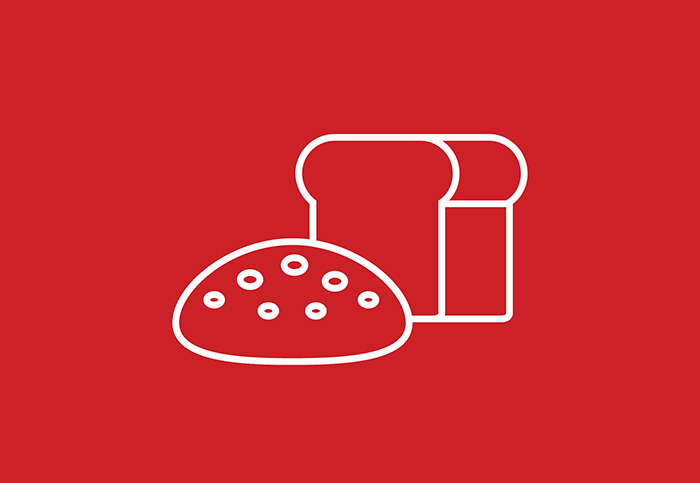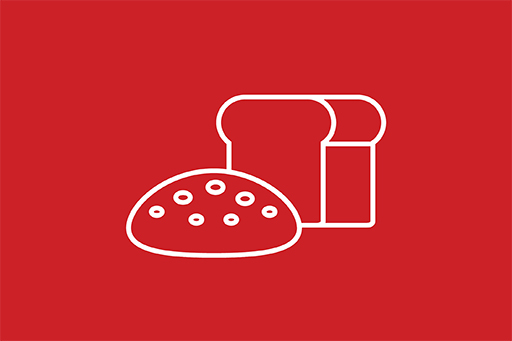In Insight
Follow this topic
Bookmark
Record learning outcomes
Food allergy is not the same as food intolerance, and it's important that pharmacy teams understand the difference so they can advise consumers accordingly

Food allergies are on the increase. According to Allergy UK, there are millions of adults in the UK alone who suffer from at least one allergy, and the number of allergy sufferers is increasing by about 5 per cent every year. Worryingly, just in the past decade, the incidences of food allergies have doubled and the number of hospitalisations due to severe allergic reactions has increased seven-fold.
To confuse the issue further, more people are claiming to suffer from food intolerance, which has led to consumers cutting out foods that contain gluten, dairy and other common food groups without consulting their healthcare providers for advice.
The Broadway Pharmacy in Preston offers customers the Alphega allergy screening service. When is a food allergy not a food allergy? Manager and pharmacist Michael Ball suggests that pharmacy staff question the customer about their symptoms. Symptoms that occur after eating certain foods could be anything from red patches on the skin, a tingling feeling in and around the mouth, swelling, or even vomiting and diarrhoea.
"If the symptoms start within 20 to 40 minutes, it is probably allergic in nature," he says. "If they occur a few hours after and include bloating, tiredness and possibly migraine, it could be an intolerance to a food type and not an allergy."
Screening
The term "allergy" is often used as an umbrella term to cover many symptoms, but Mr Ball believes that once the customer's exact symptoms have been established, the pharmacy team can provide better advice and direction as to which allergy screening test is best, and provide advice on managing the cause/s and dealing with it. The pharmacy-led screening service has proved increasingly popular in Preston.
"We have been providing the service for approximately three years now, with improving success in terms of patient recruitment," says Mr Ball. "Typically, we are now providing about four screens per month. Although we have patient information leaflets, most patient recruitment comes through referrals from patients who have already had a screen, or through consultations with patients presenting with symptoms potentially indicative of an intolerance or allergy."
If an intolerance or allergy has been identified, the screening services act as a signpost. The results are discussed fully with the customer, and if a referral to their GP is required, then this is encouraged.
According to Allergy UK clinical director Maureen Jenkins, a very good indicator of whether a reaction is caused by an allergy is the age of the person who suffers from it. "Intolerances are different from food allergies," she says. "They are not caused by the immune system and are not life threatening and, while they can affect children, they rarely affect infants. So, if a very young child shows symptoms after eating a certain food, it's more likely to be a true allergy, which needs to be investigated by a GP."
Allergy/intolerance checklist
It can be difficult to advise when an adult customer visits the pharmacy looking for advice about a suspected food allergy or intolerance. If the customer doesn't know what's causing their symptoms, key questions you can ask them to include:
- What are your symptoms? The most common symptoms of food intolerance are likely to be gastrointestinal bloating, wind, and loose stools. Other symptoms may be rashes, joint pain and headaches.
- What foods are causing the problems? Lactose intolerance (lactose is the natural sugar in milk), although common in many African and Asian people, is usually transitory in Europeans after a gastrointestinal infection or other illness. If a customer thinks they may have developed lactose intolerance, you should refer them to a GP, who will be able to ask for a test for lactose intolerance. With other foods, it could be a case of trial and error, however. Even though there are many health food stores and clinics that offer a food allergy testing service, there is no validated test for food intolerance other than lactose available at the moment.
- Have you spoken to your GP/a dietician? Food intolerances can be diagnosed with the help of a registered dietitian using a process of elimination of the suspect food and monitored reintroduction. While wheat and dairy are the most common food intolerances in the UK, they are not the only culprits you're likely to hear about from customers.
"Pharmacists should also advise individuals to keep an accurate record of foods and drink consumed along with the symptoms they experience and to drink plenty of water," says Ms Jenkins. You can download Allergy UK's Food and Symptoms diary from here.
Advising customers
Unfortunately, confusion between intolerance and allergy means that there are those who may needlessly over-restrict foods or even those who could be unknowingly at risk of a severe reaction. Food exclusion should normally be advised under medical or dietetic supervision only, but pharmacy staff might also suggest it if the suspected trigger food isn't essential. Cutting out whole food groups such as dairy and wheat can result in malnutrition in children without professional advice.
"Many patients with a food allergy worry when they or their child gets redness around the mouth or tingly with an acidic fruit, such as pineapple, oranges or a naturally high-histamine containing fruit, such as tomato or strawberry," says Lauri-Ann Van der Poel, a paediatric allergist at Guy's and St Thomas' Hospital.
"These tend not to be true allergies but are rather an adverse or chemical reaction, especially on sensitive skins. If a person chooses to avoid that discomfort, that is their choice and they are unlikely to be nutritionally compromised by that choice."
Customers with allergies can be directed towards a new app, called FoodMaestro, which has been developed in partnership with Guy's and St Thomas' Hospital Trust. It gives people the opportunity to manage their food-related conditions and decipher complex nutritional labelling, whether they are suffering from a true allergy or food intolerance.
"FoodMaestro puts consumers in control of searching, scanning and discovering safe foods, all in one simple-to-use app," says Ms Van der Poel. "For intolerance, any ingredient may be excluded, not just the 14 allergens that legally need to be declared."
The use of probiotics can potentially be helpful for people with food intolerances, for rebalancing the gut flora, and also for modulating the corresponding immune system and improving digestive efficiency. A recent study has even indicated that lactobacillus probiotics may help in the treatment of food allergies by relieving intestinal inflammation.
According to Probiotics International (Protexin), the manufacturer of the Bio-Kult range, as individual probiotic strains have specific beneficial effects, a multi-strain probiotic could be even more helpful. The brand's Winter Worries? the campaign comprises point-of-sale material and window displays. This year there is extra material included on its "hot topic" subject, antibiotics and probiotics. Protexin also has a nationwide team of nutritional therapists who visit community pharmacies, training staff and customers about the use of probiotics.
Comment
 Vishal Mahru, Vm Pharmacy Services, Leicester "People come in to ask about gluten-free products. I think that this category is becoming more and more important. Sometimes people come in before they've been diagnosed, say because they've come out in a rash and want to know what it is. We talk to them about keeping food diaries, recording what they last ate before the reaction, and then we'll go through all the necessary questions to identify what it may have been. At the moment there's no gluten-free service in our area but that's something we're looking to work on. We tend to give advice first and then suggest a product for the customer to try to see if it helps with the issue they're having. For most people, it's a case of trying it and seeing how they go with it."
Vishal Mahru, Vm Pharmacy Services, Leicester "People come in to ask about gluten-free products. I think that this category is becoming more and more important. Sometimes people come in before they've been diagnosed, say because they've come out in a rash and want to know what it is. We talk to them about keeping food diaries, recording what they last ate before the reaction, and then we'll go through all the necessary questions to identify what it may have been. At the moment there's no gluten-free service in our area but that's something we're looking to work on. We tend to give advice first and then suggest a product for the customer to try to see if it helps with the issue they're having. For most people, it's a case of trying it and seeing how they go with it."
 Rena Dadra, Village Pharmacy, Harlington "We've had a lot of people coming in to ask about food allergies. I think it's down to greater levels of advertising for some of the products. There are so many gluten-free and lactose-free products out there now, that it's quite easy for people to get confused about whether that's for them or not. The worry is that people will think they're allergic to everything when they really aren't. Lots of customers ask if we can test for allergies and seem downhearted when we tell them that it's something that only hospitals can do. I think it's something that could be looked into for pharmacy, but in the end, it comes down to funding. Newborn babies are one of our big food intolerance groups: the Aptamil products are very popular and mums come back and say their babies are crying a lot less."
Rena Dadra, Village Pharmacy, Harlington "We've had a lot of people coming in to ask about food allergies. I think it's down to greater levels of advertising for some of the products. There are so many gluten-free and lactose-free products out there now, that it's quite easy for people to get confused about whether that's for them or not. The worry is that people will think they're allergic to everything when they really aren't. Lots of customers ask if we can test for allergies and seem downhearted when we tell them that it's something that only hospitals can do. I think it's something that could be looked into for pharmacy, but in the end, it comes down to funding. Newborn babies are one of our big food intolerance groups: the Aptamil products are very popular and mums come back and say their babies are crying a lot less."
 Shaheen Bhatia, P&S Chemist, Ilford "We don't have many people coming to us with food allergy in this area, other than those who've already had their condition assessed by a doctor. Advice is a useful thing in this category. While two people can have the same issue, one might have it significantly worse than the other. We have offered allergy testing in the past, but it was rather expensive; on average it cost £50. But there could be room for a service like this to exist through pharmacies. Ironically, more people are asking for advice since we stopped our service and demand seems to be growing. I think with doctors' surgeries being so over-subscribed, pharmacies could start up private services like this to give people more options."
Shaheen Bhatia, P&S Chemist, Ilford "We don't have many people coming to us with food allergy in this area, other than those who've already had their condition assessed by a doctor. Advice is a useful thing in this category. While two people can have the same issue, one might have it significantly worse than the other. We have offered allergy testing in the past, but it was rather expensive; on average it cost £50. But there could be room for a service like this to exist through pharmacies. Ironically, more people are asking for advice since we stopped our service and demand seems to be growing. I think with doctors' surgeries being so over-subscribed, pharmacies could start up private services like this to give people more options."
Unfortunately, confusion between intolerance and allergy means that there are those who may needlessly over-restrict foods or even those who could be unknowingly at risk of a severe reaction

